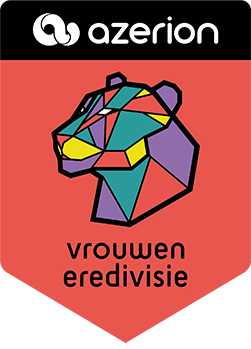It is not possible to load the page you were looking for on KNVB.com.
The website is currently in maintenance mode. Please try again later.
Do you use an adblocker? Try turning it off and reload the page.
KNVB.nl
News and support for Dutch football.
Oranje
The official channel of the KNVB for all Oranjefans.
Voetbal.nl
The platform for results, standings, programs for all amateur football players in The Netherlands.
TOTO KNVB Beker
The latest news, results and programs of the TOTO KNVB Beker.

Azerion Vrouwen Eredivisie
The official channel of the Pure energie Eredivisie Vrouwen with the latest news, programs standings and rundows.
Rinus
The online assistant for all youth trainers of The Netherlands.
KNVB Shop
The offical webshop of the KNVB.
KNVB Ticketshop
The Offical sales channel for the KNVB. Buy your tickets here for Oranje and the TOTO KNVB Beker.
Good sportsmanship and respect have been key priorities for the KNVB for many years. We’re committed to raising standards of behaviour on and off the pitch.
For this reason, we’re taking part in the national campaign ‘Towards a safer sports climate’ [‘Naar een veiliger sportklimaat’, NVS], organised by several sports. In addition, we’ve drawn up several support programmes and awareness campaigns to tackle undesirable behaviour and bring about positive change.
The KNVB is committed to raising refereeing standards and promoting the use of technology in the decision-making process on the pitch to ensure the flow and fairness of football matches.
In the 2013-14 season, the KNVB launched a two-year pilot scheme called Arbitrage 2.0, which translates as Refereeing 2.0. It included trials of (Hawk-Eye) goal-line technology and the deployment of a fifth and sixth official. For the long term, the KNVB strongly believes in the potential of a video assistant, which was also part of the pilot scheme.
Players are reminded of the need to show respect and good sportsmanship on the football pitch at all times. Failure to do so may result in disciplinary measures. The KNVB has an effective system in place to discipline players involved in incidents on or around the football pitch.
Sanctions are given by independent experts appointed by the clubs, under the rules drawn up in collaboration with the clubs. Procedures in amateur football have been simplified from the 2014-15 season.
Each year, clubs, players, parents, fans and other football lovers express their appreciation and gratitude to (assistant) referees during the Week of the Referee.
Each year, more than 300,000 youth players take action in support of children with muscle-related diseases or other disabilities, making the Zwaluwen Jeugd Actie the biggest sports-related charity campaign in the Netherlands.
In 2014, the campaign raised a record amount of 410,000 euros. Princess Beatrix was presented the substantial cheque at a special ceremony at Everstein football club in the central village of Everdingen.
Most of the money will go to research into Duchenne muscular dystrophy, a serious disorder which results in muscle degeneration and eventual death, and which usually affects only boys.
— In 2014, the Zwaluwen charity campaign raised a record amount of 410,000 euros.
The Zwaluwen Jeugd Actie is an initiative of ANVV de Zwaluwen in collaboration with the KNVB, the Prinses Beatrix Spierfonds and the Spieren voor Spieren foundation. It has been a major success for half a century. It all started in 1956, when a young football player suffering from polio organised a tournament to raise funds for the Amsterdam Polio Club.
From the 2014-15 season, all players born in 1998 must be in possession of a laws of the game certificate to show that they have sufficient knowledge of the rules. A new birth year is added each year. The additional aim is to give youth players more insights in – and respect for – refereeing decisions.
The blue card is a joint project of Volkswagen and the KNVB, aimed at encouraging fair play on the football field. The card may now be awarded to opponents at the end of any children’s competition fixture as a way of thanking them for a good, clean and friendly match.
— Netherlands striker Klaas Jan Huntelaar hands out a blue card.
The blue card was introduced among the youngest teams from the 2013-14 season. It aims to encourage clubs and their members to make matches fun to play and to watch. As many as 8,000 teams have signed up for the project.
Since January 2016, misbehaving C, B and A-juniors (aged 13-18) have been invited to a sports and behaviour course. The training adds an educational component to the system of disciplinary punishment. Juniors who have successfully completed the course will have their exclusion or suspension largely converted into a suspended sentence.
The KNVB has introduced the training to give young footballers a second chance and to make them more aware of their behaviour. It is part of the KNVB’s drive to encourage good sportsmanship and respect on and off the football pitch.



